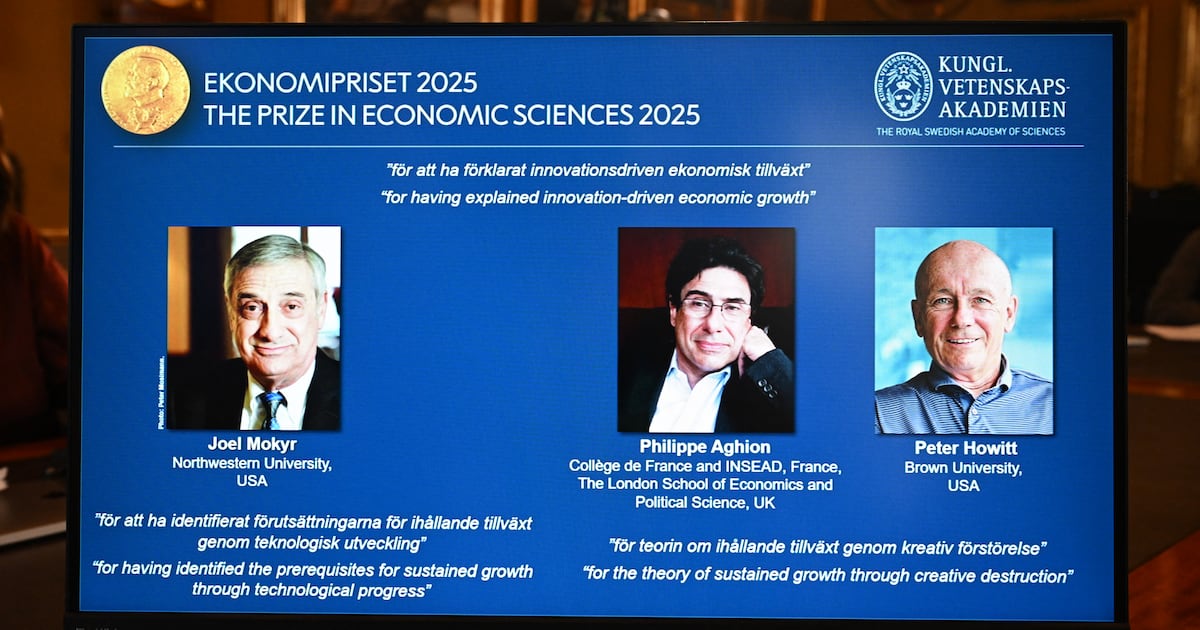Science
Nobel Laureate Joel Mokyr Collaborates on New Book with UCD Economists

Nobel Prize in Economics recipient Joel Mokyr is set to publish a new book in collaboration with two prominent Irish economists from University College Dublin (UCD). The project, focused on the industrial revolution in Britain, brings together Mokyr and Morgan Kelly, who famously highlighted the risks of the Irish property bubble in 2006, along with Cormac Ó Gráda, an emeritus professor of economics at UCD.
“We are working on a book together about the industrial revolution in Britain,” Ó Gráda stated. Although the title has yet to be finalized, the collaboration began when Ó Gráda and Kelly were developing their own separate works on the subject. Mokyr’s interest in the project led to his involvement.
Mokyr, currently a professor at Northwestern University in the United States, previously authored a significant work on the Irish famine titled Why Ireland Starved; A Quantitative and Analytical History of the Irish Economy, 1800-1850, published in 1983. This book had a lasting impact on Irish scholarship. Ó Gráda noted that he first met Mokyr during the research for this earlier book, and the two have maintained a close friendship since then.
Following Mokyr’s recent Nobel Prize announcement, Ó Gráda expressed his excitement. “I’m still buzzing. I’ve been talking to him a few times already today. We are close friends.” He humorously recounted a conversation they had prior to the announcement, where he jokingly predicted Mokyr would win the Nobel Prize. Mokyr had quipped back that he was “more likely to become a pope,” referring to his Jewish background.
The work on the new book is reportedly “half done,” but Ó Gráda acknowledged that the recent accolade might delay its completion. “So Morgan and I will have to step up,” he added.
Mokyr’s journey into economic research took a pivotal turn in the late 1970s when he completed a study on the Belgian and Dutch economies in the nineteenth century. Seeking a “loser economy” to analyze next, he was advised to explore Ireland, leading to his influential research on the Irish famine.
As this promising collaboration unfolds, the academic community looks forward to gaining insights into the industrial revolution from these esteemed economists, blending their expertise and historical perspectives.
-

 Top Stories1 month ago
Top Stories1 month agoTributes Surge for 9-Year-Old Leon Briody After Cancer Battle
-

 Entertainment3 months ago
Entertainment3 months agoAimee Osbourne Joins Family for Emotional Tribute to Ozzy
-

 Politics3 months ago
Politics3 months agoDanny Healy-Rae Considers Complaint After Altercation with Garda
-

 Top Stories2 months ago
Top Stories2 months agoIreland Enjoys Summer Heat as Hurricane Erin Approaches Atlantic
-

 World3 months ago
World3 months agoHawaii Commemorates 80 Years Since Hiroshima Bombing with Ceremony
-

 Top Stories3 months ago
Top Stories3 months agoFianna Fáil TDs Urgently Consider Maire Geoghegan-Quinn for Presidency
-

 World3 months ago
World3 months agoGaza Aid Distribution Tragedy: 20 Killed Amid Ongoing Violence
-

 World3 months ago
World3 months agoCouple Convicted of Murdering Two-Year-Old Grandson in Wales
-

 Top Stories1 month ago
Top Stories1 month agoNewcastle West Woman Patricia Foley Found Safe After Urgent Search
-

 Top Stories2 months ago
Top Stories2 months agoHike Donegal’s Errigal Mountain NOW for Unforgettable Summer Views
-

 Top Stories2 months ago
Top Stories2 months agoClimbing Errigal: A Must-Do Summer Adventure in Donegal
-

 World3 months ago
World3 months agoAristocrat Constance Marten and Partner Convicted of Infant Murder









